[Techie Tuesdays] Amitabh Misra, the architect of India's largest online marketplace
Known as the Leather City of the world and Manchester of the East, Kanpur is far from the fame it deserves for its other contributions. Historically, it was recognized first by the British Army as a strategically important place for an army base given its location. Hailed as one of the most important industrial cities of India, it is home to a few premier educational institutes as well. The Indian Institute of Technology, Kanpur was the first Indian institute to offer computer science education. Decades later when technological and businesses went on to be driven by computers, IIT-Kanpur played a fair part in the developments.
The Indian startup ecosystem has many IIT-Kanpur alumni as its pillars. Naveen Tewari, Founder of InMobi, Mukesh Bansal, Founder of Myntra, and Amitabh Misra, ex-CTO of Snapdeal are some of them. Amitabh is the man behind the technology of India’s largest marketplace. He’s our Techie Tuesdays for this week. As humble as it gets, here are the excerpts of our conversation with him.
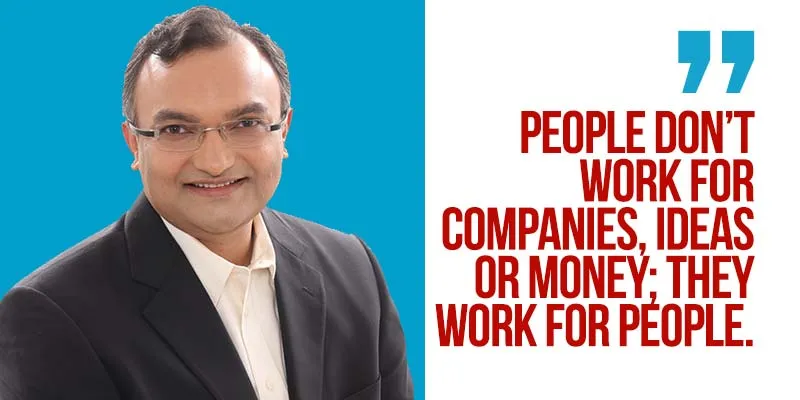
‘Chemical engineering, because that’s all I could manage’
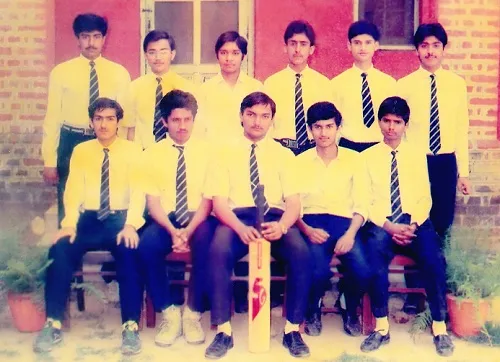
A local boy, Amitabh was born and brought up in Kanpur. He came from a lower middle class family where education was valued a lot. Till his class tenth, he was keenly into music and athletics as much as academics. He was the captain of his school cricket team. Maths and science came naturally to him, thus it was no surprise that he chose IIT Kanpur. Given his rank, he didn’t have many options and settled for Chemical Engineering.
However, in his early days at IIT, he wanted to become an IAS (Indian Administrative Services) officer. It was only later that he realized that the work done as a government servant might not be appreciated as much. He also felt that he would not be able to meet like-minded people. Rewards in private companies depend only on skills and merits. These reasons were convincing enough for Amitabh to join Lupin after college, in the times when chemical engineering seemed a big deal. He recalls,
At that time, the notion about engineering was a life around machines and manufacturing plants and not the one in front of a computer.
In his four years at college, Amitabh grew in confidence and believed that he can go out and change the world. He wanted to do things which were generally out of bounds. He made friends who would stay on for life.
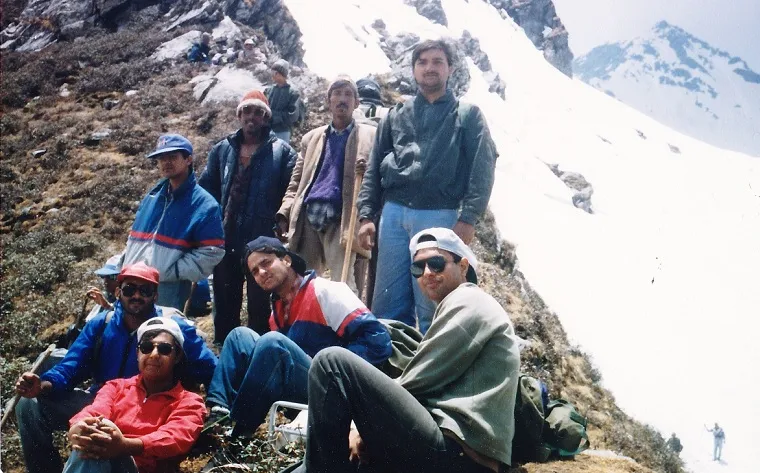
‘If I want to do something, I’ll not wait for the right time’
In his job, Amitabh managed a team of more than 100 people in the plant with almost 100 crore turnover. Though it was challenging but it wasn’t what he was looking forward to. He wanted to learn, participate and be around people with the same level of intellect. All these attributes matched perfectly when one of his cousins, who was a senior executive in Infosys, introduced him to his life. Amitabh says,
Temperamentally, whenever I’m not satisfied I don’t wait. I just quit immediately.
True to his words, he had left Lupin even before deciding to join Infosys. He could qualify for the job with his chemical engineering degree because Infosys was the only software firm which would hire people for their aptitude and not domain knowledge.
Welcome to the world of software and technology
The world of Infosys greeted him with engineers all around. They worked with the notion that they and the company together were making software that will change life around them. In his two years at Infosys, Amitabh worked on a project involving the development of a large scale application for captive credit cards. He traveled to Malayasia, Singapore and a few other countries to get exposure on the technological revolution happening around the globe. He realized that while India was beginning to see the technology revolution, the real magic was happening in Silicon Valley. He understood that his natural next step would be to go there if he wanted to travel further in his career.
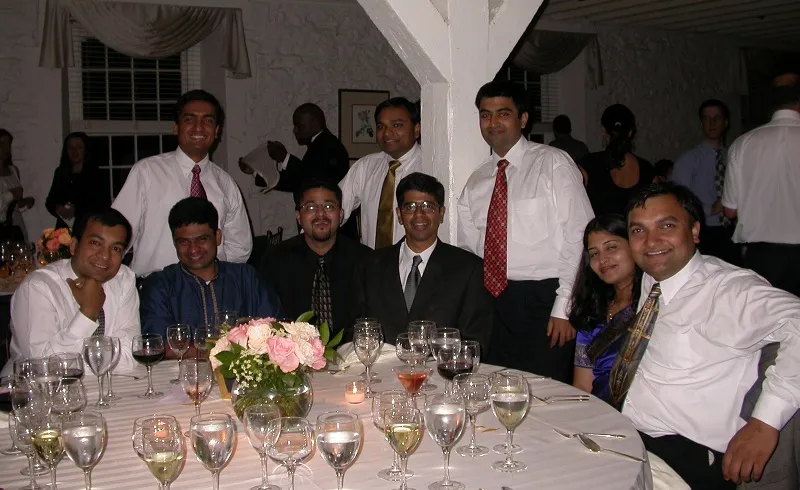
Amitabh was clear about not pushing himself too early into management and wanted to become an architect (tech-infra) instead. He left for Silicon Valley in 1998, when the dot com boom had just begun. He knew that neither his training as a chemical engineer, nor his learnings at Infosys were going to suffice. So he worked hard after joining the Centre for Professional Development, Computer Science at Stanford University. He was studying, working with a startup and taking a lot of projects alongside, when he got an opportunity at Wells Fargo which was then building the largest web-services of the world.
There were not many Java-based web services back then. Only a handful of large Internet companies existed. Large infrastructure was built to support the systems at finance companies. Wells Fargo had application servers which even IBM did not have. The scale at which the company was operating, which was a massive success for another five-six years, gave Amitabh a great learning experience and a feeling of accomplishment.
But it was also the time he had started to think about joining a startup.
Related read: From the power capital of India to the powerhouse of India’s largest e-commerce company – Amod Malviya, CTO, Flipkart
Tech to techno-management
Amitabh recalls,
I’d reached (tech) saturation. I knew that I can learn more and master more technologies but the only way I can contribute to the next level is to move from my architect role to a techno-managerial role.

Management is not one of the most preferred areas architects move to. Amitabh joined Verisign as Senior Manager for Software Development and handled the web part of the technology in the company. He understood that managing people gives only a selective perspective and it can take a long time to learn management overall. Remembering his Stanford days, he decided to accelerate his managerial skills by going for an MBA. By that time, his second son was born and it was too hard to manage the family, job and MBA. To concentrate on his MBA, he gave up the job.
In his MBA, Amitabh focused on learning sales, marketing, negotiation, soft skills and everything else one doesn’t get from an engineering career. According to Amitabh,
If you elevate a very good engineer to a manager, you lose a good engineer and get a bad manager. It is evident that engineering is all about decision making, going through the analytical way, and trying to achieve accuracy. However, management and business is about abstraction, trying to do things when you don’t know the outcomes. You have to learn a lot and unlearn even more during an MBA if you’re an engineer.
Amitabh’s highlight of his MBA remains the moment when his sales professor was surprised at his extra-ordinary performance (being an engineer) and gave one of the signed copies of his book with a No.1 student remark.
During his time in Silicon Valley, Amitabh learnt how disciplined people were and the meaning they attach to words and promises.
Swades moment
While growing up, Amitabh always wanted to do something for India. That’s why the very thought of leaving the country never crossed his mind for many years. In fact, his decision to appear for IAS examination (UPSC) was an escape from higher studies abroad. He says,
I have paid Rs. 500 as my tution fee at IIT-Kanpur for world class education. I wanted to give back to my country for giving me the best of everything.
Amitabh’s parents were getting old. He wanted his children to grow up in a culture that he valued. After his MBA in 2011, a time when the tech startup scene was taking off in India, he didn’t think twice and packed his bags to return to India.
The choice between Bengaluru and Delhi was made based on the proximity to Kanpur, where Amitabh’s parents lived. He was confident that even if he was given a team without skills but right attitude, he could make products.
Related read: Shamik Sharma, the PhD dropout computer scientist who controls the technology and product at Myntra
Snapping the deal on the go
Amitabh chanced upon Snapdeal in late 2011 when it was only a 15-20 member team. It was into deals and coupons then and the founders were looking to build a platform that could sell products. He recollects,
I felt that there was a belief in the team that tech is the game changer. We knew that if we do well in tech, we could succeed tremendously as a company.
However, building a marketplace was not easy as other e-commerce companies had raised far more money than Snapdeal and getting tech talent was harder in Delhi. For the first six months, he was working for almost all seven days a week. He traveled to Bengaluru, Hyderabad, Chennai, and Pune almost every month and convinced people from premier institutes to join Snapdeal.

Powering the technology at Snapdeal
While building the tech team at Snapdeal, Amitabh looked for aptitude, culture kit and value systems in the candidates. He could let go experience but not these three. According to him, the importance and efficacy of these values can be gauged by the fact that the attrition rate among the leadership team was zero until late last year.
Amitabh’s stint in Snapdeal revolved around building the tech platform and the team. The experience can be summed up as follows:
- Large number of people (in tech team) had not built the systems to this scale. The company scaled at 100% month-on-month and it was all handled smoothly.
- There were tough times but as everyone stuck together, the entire team managed to pull off any nagging issues.
- Risk is inherent to technology. The leadership team should have a tendency to take risks, completely aware of the fact that there will be problems while building and scaling up system(s).
While at Infosys, Amitabh has worked on products, it was different at Snapdeal. This time, he was building something which is used by everyone around him and not by someone remotely living in a foreign land. The platform was affecting the everyday lives of people in India and this gave him a sense of achievement.
Challenges of technology team(s)
Amitabh believes that growth is an important challenge for technology startups. He says, "If there are 10 things to do and you’ve the bandwidth to do only six, you’ve to make systems to work out on remaining four more. Architecture should support quick turn around and allow selective scaling."
He believes that engineering is the hardest thing to balance. He says,
For most parts, people would not realize that the tech team is unable to deliver a feature because there has not been good enough investment in the architecture. The engineering team will always find it hard to explain.
How I want my movie to play
Amitabh will be a satisfied man if he is able to move the needle in the following three aspects. In fact, that’s how he wants to be known as:
- A better person in terms of my knowledge and appreciation of other people.
- As an engineer, what I built was useful and great.
- Contributing back to the society, directly or indirectly.
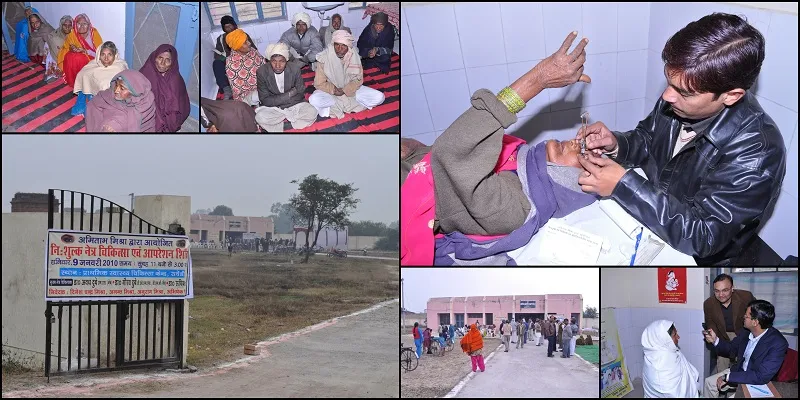
He recently organised an eye check-up and operation camp in Sanchedi village where more than 600 people were treated for free.
Of people and technology
According to Amitabh, technology is smart knowledge. It is something that intrigues you, challenges you and something you can master. Once you’ve mastered it, it can be used to improve our lives and of people around us.
He believes that things are changing in India but we have still a long way to go. He says,
Younger folks are very hungry. You’ve excitement in Valley (Silicon Valley) but the hunger here is unmatched. It is very important to build a great ecosystem.
Amitabh is all set to be a part of a fourth startup, this time as a founder. In his experience with startups his most important learning has been:
People don’t work for companies, ideas or money; they work for people.
His key advice for young professionals and entrepreneurs are:
- For success, see beyond technology. There are no short cuts. If you want to make progress, you have to work hard.
- Pay a lot of attention to education and invest in learning. You can learn only so much on the job and through books. Knowledge is accelerated with education.
- Invest in people who reciprocate, challenge you and are fun to work with.
Since last few months, Amitabh has been busy with his new startup which is in stealth mode at the moment. Watch out this space for further updates.
You can find Amitabh on twitter.






![[Techie Tuesdays] Amitabh Misra, the architect of India's largest online marketplace](https://images.yourstory.com/cs/wordpress/2015/07/Amitabh-Misra.jpg?mode=crop&crop=faces&ar=16%3A9&format=auto&w=3840&q=75)




